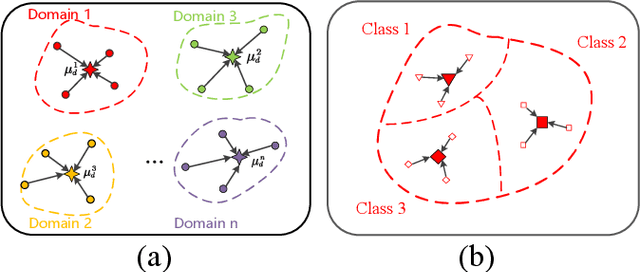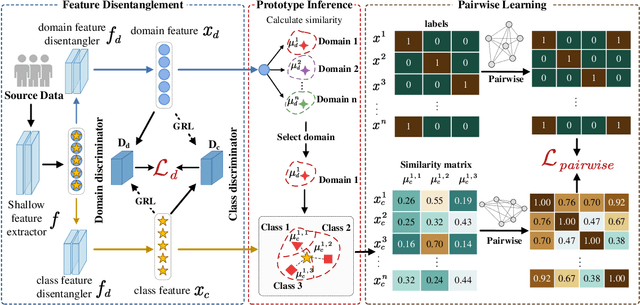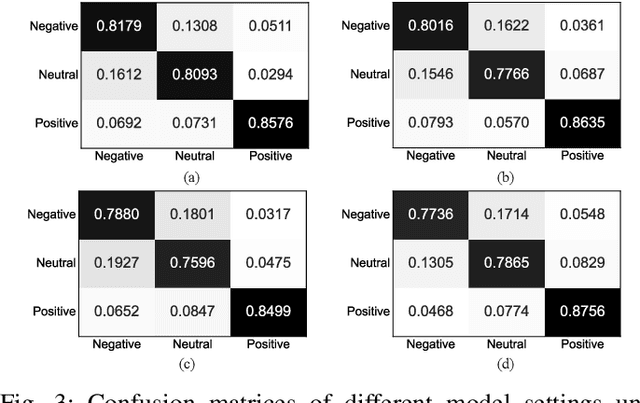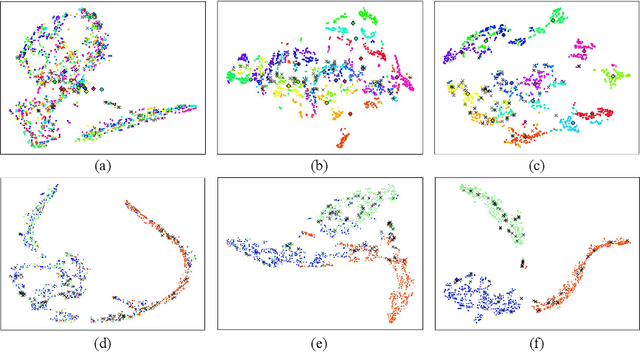Dual Prototyping with Domain and Class Prototypes for Affective Brain-Computer Interface in Unseen Target Conditions
Paper and Code
Nov 27, 2024



EEG signals have emerged as a powerful tool in affective brain-computer interfaces, playing a crucial role in emotion recognition. However, current deep transfer learning-based methods for EEG recognition face challenges due to the reliance of both source and target data in model learning, which significantly affect model performance and generalization. To overcome this limitation, we propose a novel framework (PL-DCP) and introduce the concepts of feature disentanglement and prototype inference. The dual prototyping mechanism incorporates both domain and class prototypes: domain prototypes capture individual variations across subjects, while class prototypes represent the ideal class distributions within their respective domains. Importantly, the proposed PL-DCP framework operates exclusively with source data during training, meaning that target data remains completely unseen throughout the entire process. To address label noise, we employ a pairwise learning strategy that encodes proximity relationships between sample pairs, effectively reducing the influence of mislabeled data. Experimental validation on the SEED and SEED-IV datasets demonstrates that PL-DCP, despite not utilizing target data during training, achieves performance comparable to deep transfer learning methods that require both source and target data. This highlights the potential of PL-DCP as an effective and robust approach for EEG-based emotion recognition.
 Add to Chrome
Add to Chrome Add to Firefox
Add to Firefox Add to Edge
Add to Edge